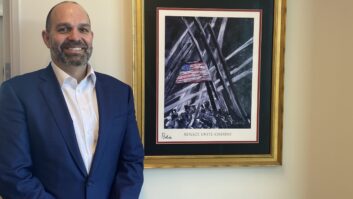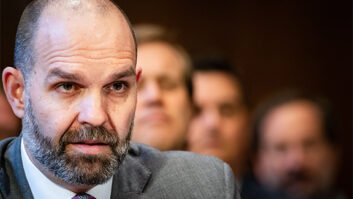
“Completely one-sided.” That’s how Curtis LeGeyt describes the proposed American Music Fairness Act, or AMFA.
In a blog post, the new president/CEO of the National Association of Broadcasters says the latest performance royalty legislation would “hurt the very artists that it claims to help by having a profound effect on one of their most impactful outlets: local radio stations around the country.”
The issue is active again on Capitol Hill, as we recently reported.
“Just like some artists, thousands of radio stations around the country are struggling in the aftermath of a pandemic. Stations across the country could pay hundreds of thousands of dollars in new royalties,” LeGeyt wrote.
“Even the AMFA’s ‘starter fee’ would absolutely impact their ability to pay salaries, utility bills and cover local news, and that the fee will only get larger in the years to come.”
The latter remark refers to a provision that small broadcasters would be limited to annual payments of $500 and qualified public, college and noncom stations would pay $100.
LeGeyt says the bill addresses only one aspect of what should be a broader discussion. “A system as complex as the music licensing regime that for years has allowed artists, record labels and radio stations to thrive, deserves a holistic look if it’s no longer serving the interests of those who depend on it.”
He repeated criticism of the artists and labels that he had made in his recent hearing appearance. “It’s hard to dance when you don’t have a willing partner. The record label execs who criticize local radio while at the same time asking for airplay for their artists refused to engage in meaningful negotiations and repeatedly rebuffed every proposal we put on the table.” Read his post.
Advocates for a performance royalty are vocal about what they perceive as the injustice of the longstanding exemption for radio stations. Michael Huppe, president/CEO of SoundExchange, has said the lack of radio performance rights to artists or labels “is one of the most egregious injustices that exists today in the U.S. music industry.”






